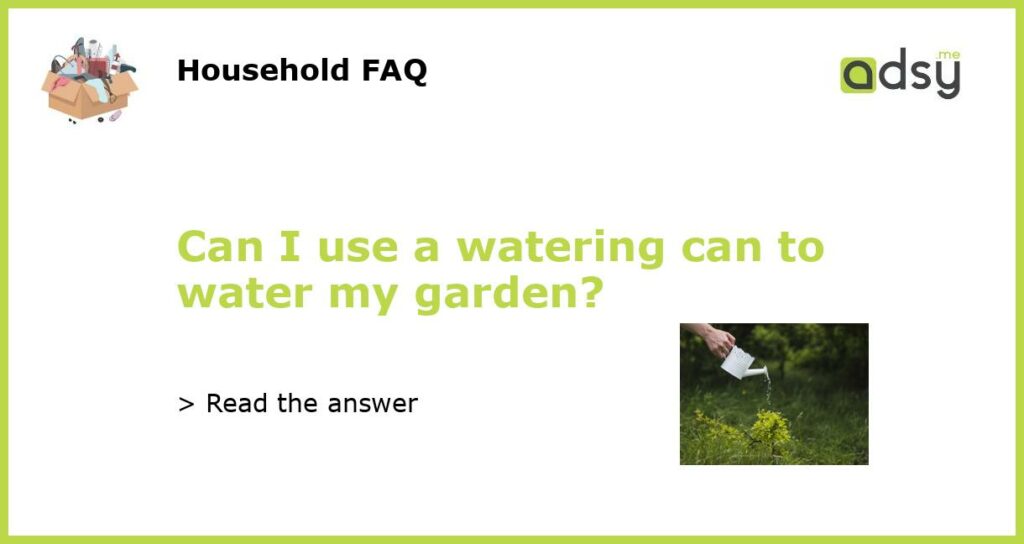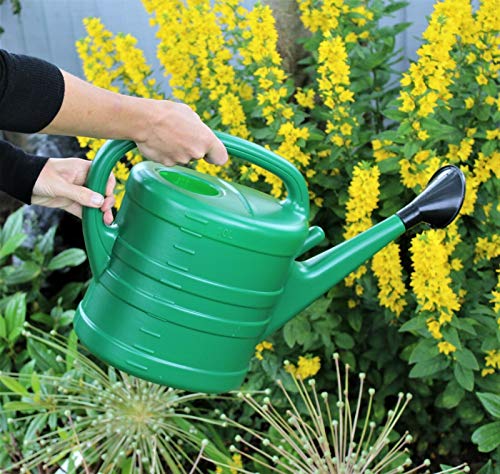Yes, you can use a watering can to water your garden
When it comes to watering your garden, there are a variety of methods you can use. One popular option is to use a watering can. While it may seem like a simple tool, a watering can actually offers several benefits and advantages for gardeners. In this article, we will explore why you can indeed use a watering can to water your garden.
The advantages of using a watering can
Using a watering can has several advantages that make it a popular choice for many gardeners. Firstly, a watering can allows for more precise and targeted watering. With a small spout, you can direct the water exactly where it is needed, avoiding watering areas that don’t need it.
Secondly, using a watering can allows you to control the amount of water each plant receives. This is particularly important for plants with specific water requirements. By adjusting the flow of water from the can, you can ensure that each plant gets the right amount of water, preventing over or under watering.
Furthermore, a watering can is a more sustainable option compared to other methods such as hoses or sprinklers. With a watering can, you can easily reuse water from rain barrels or collect and store greywater for your plants, reducing water waste and conserving resources. It also helps in preventing water runoff, which can carry pollutants and cause soil erosion.
How to effectively use a watering can for your garden
While using a watering can is relatively straightforward, there are some tips to keep in mind to ensure that your plants receive optimal hydration. First and foremost, it is important to water your garden early in the morning or late in the evening when the temperatures are cooler. This helps to reduce water loss due to evaporation and allows the plants to absorb the water more effectively.
When using a watering can, aim to water the base of the plant rather than the leaves. This prevents the risk of fungal diseases, as wet leaves can create a favorable environment for pathogens to thrive. Additionally, avoid overwatering by giving the soil time to dry out between watering sessions. This helps to promote healthy root growth and prevents waterlogged soil, which can lead to root rot.
When to consider alternatives
While watering cans are generally a reliable tool for garden watering, there are instances where other methods may be more suitable. If you have a large garden or a lot of plants to water, using a watering can may not be practical or time-efficient. In such cases, a garden hose or sprinkler system may be a better option to cover larger areas more efficiently.
Additionally, if you have mobility issues or health concerns that make carrying a watering can difficult, you may want to explore alternatives such as soaker hoses or automated irrigation systems. These options provide a hands-free approach to watering your garden while still allowing for precise and controlled watering.
In conclusion, using a watering can to water your garden is a viable and beneficial option. It allows for targeted and precise watering, gives you control over the amount of water each plant receives, and promotes sustainability by reducing water waste. However, it is important to keep in mind the specific needs of your garden and consider alternative methods if necessary. With proper techniques and attention to the watering needs of your plants, a watering can can be an effective tool in maintaining a healthy and thriving garden.






